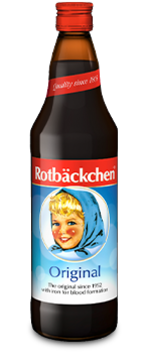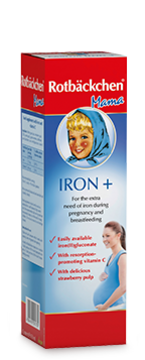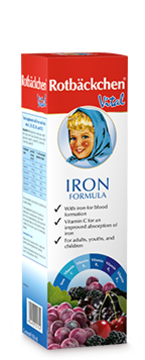Iron
Our food provides us with many important nutrients that we need for good health. Iron is an essential part of a varied and balanced diet. Here, you can find out what iron does in the body and what foods contain it.
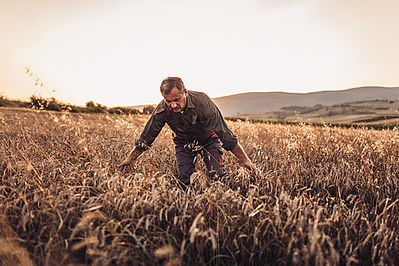 What is iron?
What is iron?
Iron is a mineral. These are vital inorganic nutrients that the body cannot produce itself. Specifically, iron is called an “essential trace element”. Trace elements only occur in the body in minor quantities. Nevertheless, trace elements are important because without them the body cannot function.
Iron is an important component of red blood-cells, which are responsible for transporting oxygen to all cells in the body. Iron-containing red blood-pigment, also known as haemoglobin, accounts for more than half of all iron in the body. Anyone who has cut their finger knows blood has a strong, metallic taste. This is because of the high iron content of haemoglobin.
Iron - Effects & special features
Iron is involved in various processes in the body. This includes blood formation, which is probably the best-known process. As stated above, iron contributes to the normal formation of red blood-cells and haemoglobin. Moreover, iron is involved in transporting oxygen through the body. Did you know, iron also contributes to normal immune system function? Or that iron can help reduce fatigue and tiredness? Less known, iron also plays an important role in cell division. More, iron is very important for children, contributing to normal cognitive development. But iron also contributes to normal concentration in adults.
Interaction with vitamin C
One of the special properties of this well-known element is that it helps the body absorb iron. From a nutritional point of view, this offers many opportunities to kill two birds with one stone: by combining foods containing iron with foods containing vitamin C, an increased iron intake with simultaneous vitamin supply is guaranteed.Meat and fish, for example, contain only small amounts of vitamin C, but have a high iron content. The body absorbs iron better when these foods are combined with fresh vegetables.
Ferrous food
![[Translate to Englisch:] Mutter und Kind beim Radieschen ernten [Translate to Englisch:] Mutter und Kind beim Radieschen ernten](https://www.rotbaeckchen.de/fileadmin/_processed_/7/1/csm_rotbaeckchen-eisen-01_01b3914b7e.jpg)
You don’t need to go out of your way to get enough iron in your food. Many foods are naturally rich in iron and taste good to children. Iron-rich foods are not necessarily based on meat. Alternatives include legumes, soya dishes, salmon, spinach or quinoa. The following meats and plant foods contain relatively high levels of iron:
| Meat-based food | per 100 g |
|---|---|
| Pork liver | 17 mg |
| Cow liver | 7.9 mg |
| Cured pork | 2.5 mg |
| Beef fillet | 2.3 mg |
| Pork chops with bone | 1.8 mg |
| Vegetable food | per 100 g | |
|---|---|---|
| Wheat bran | 16 mg | |
| Sesame | 10 mg | |
| Amaranth | 9 mg | |
| Lentils (dried) | 8 mg | |
| Sunflower seeds | 6.3 mg | |
| Chickpeas (dried) | 6.1 mg | |
| Oatmeal | 5.8 mg |
Average values according to Souci, Fachmann, Kraut: Food Composition and Nutrition Tables (7th ed.). Munich: C.H. Beck. 2008
Worth knowing
Larger amounts of natural iron are besides meat mainly found in cereals and legumes. Did you know that the assumption that spinach contains especially high amounts of iron was based on a miscalculation? It was assumed that fresh spinach contained 35 mg of iron in 100 g instead of 3.5 mg. However, among vegetables, spinach does not look so bad with only 3.5 mg. For example, fennel leaves contain only 2.7 g per 100 g and beetroot 0.9 g per 100 g.
Since the body cannot absorb “trivalent” iron from plant food, as well as “bivalent” iron from meat-based foods, you should particularly pay attention here to combine them with foods containing vitamin C.
Daily iron requirements
![[Translate to Englisch:] Haferflocken Müsli mit Banane und Heidelbeere [Translate to Englisch:] Haferflocken Müsli mit Banane und Heidelbeere](https://www.rotbaeckchen.de/fileadmin/_processed_/4/9/csm_rotbaeckchen-eisen-02_4b850f19d1.jpg)
Women have to pay particular attention to their iron supply because during menstruation they lose an average of 45 ml of blood, which contains about 22 mg of iron. In comparison, men only lose 1 mg of iron every month naturally. If the body has lost iron, it cannot produce its own to compensate for the loss. This means iron needs to be regularly taken in through a varied and balanced diet to replenished itself.
| Age | Iron mg/day - Men | Iron mg/day - Women |
|---|---|---|
| Children: | ||
| Between 1 and 4 years | 8 mg | 8 mg |
| Between 4 and 7 years | 8 mg | 8 mg |
| Between 7 and 10 years | 10 mg | 10 mg |
| Between 10 and 13 years | 12 mg | 15 mg |
| Between 13 and 15 years | 12 mg | 15 mg |
| Youth and adults: | ||
| Between 15 and 19 years | 12 mg | 15 mg |
| Between 19 and 25 years | 10 mg | 15 mg |
| Between 25 and 51 years | 10 mg | 15 mg |
| Between 51 and 65 years | 10 mg | 10 mg |
| Pregnant women | 30 mg | |
| Breastfeeding women | 20 mg |
Especially during pregnancy and breastfeeding, this trace element is of great importance for the body. Because during pregnancy women need more iron, since 30-40% more blood needs to be produced to ensure the growing uterus is sufficiently supplied so the baby can develop properly. Iron requirements are also higher during breastfeeding. During pregnancy, the daily iron requirement doubles to 30 mg and during breastfeeding it increases by another 20 mg, a third more than pregnancy. To avoid inhibiting iron absorption, do not eat foods containing iron together with black tea, coffee, milk or cheese. These and other foods contain inhibitors that make it difficult for your body to absorb iron.
More about vitamins & nutrients

Vitamins & minerals
Want to know what all the valuable micronutrients do, what foods have them and how much you need?
You can find this information here.
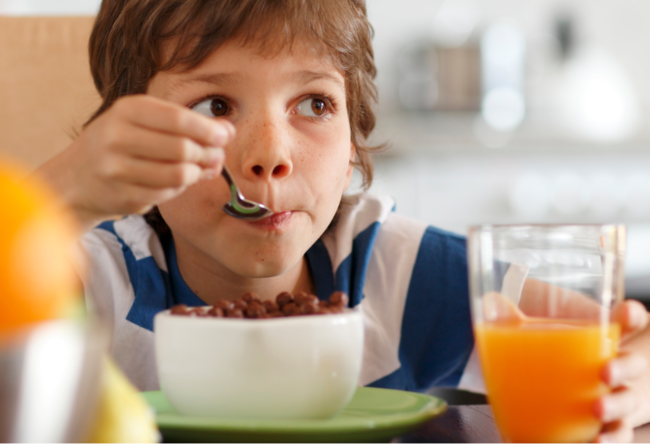
Vitamin C
This “ascorbic acid” is better known as vitamin C and is an essential component of a healthy and balanced diet. Vitamin C is especially important for children.
Find out more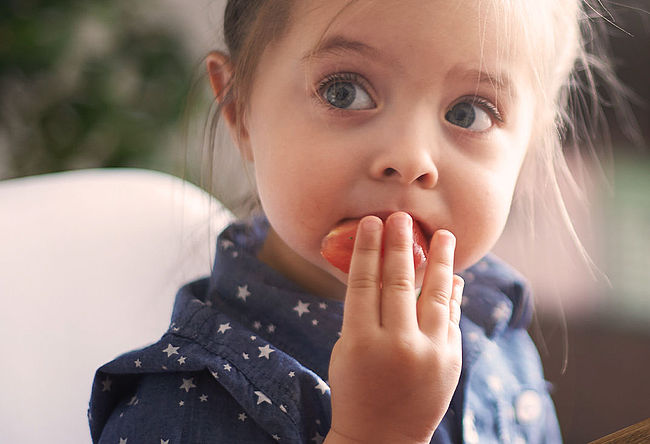
Vitamin B
The different members of the vitamin B complex perform different tasks – they take care of energy balance, the nervous system and many other processes in the body.
Find out more
